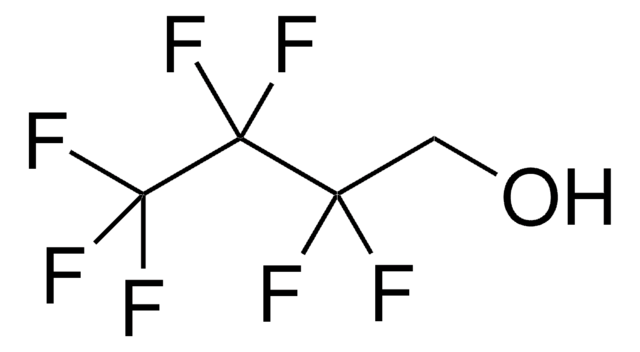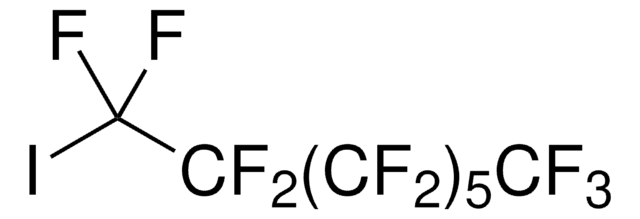532789
1H,1H,2H,2H-Perfluoro-1-decanol
97%
Synonym(s):
3,3,4,4,5,5,6,6,7,7,8,8,9,9,10,10,10-Heptadecafluoro-1-decanol, 1H,1H,2H,2H-Heptadecafluoro-n-decanol, 1H,1H,2H,2H-Perfluoro-1-decanol
About This Item
Recommended Products
Quality Level
Assay
97%
functional group
fluoro
hydroxyl
SMILES string
OCCC(F)(F)C(F)(F)C(F)(F)C(F)(F)C(F)(F)C(F)(F)C(F)(F)C(F)(F)F
InChI
1S/C10H5F17O/c11-3(12,1-2-28)4(13,14)5(15,16)6(17,18)7(19,20)8(21,22)9(23,24)10(25,26)27/h28H,1-2H2
InChI key
JJUBFBTUBACDHW-UHFFFAOYSA-N
Looking for similar products? Visit Product Comparison Guide
Related Categories
General description
Application
Signal Word
Danger
Hazard Statements
Precautionary Statements
Hazard Classifications
Acute Tox. 4 Inhalation - Acute Tox. 4 Oral - Carc. 2 - Eye Dam. 1 - Lact. - Repr. 1B - STOT RE 1
Target Organs
Liver
Storage Class Code
6.1C - Combustible acute toxic Cat.3 / toxic compounds or compounds which causing chronic effects
WGK
WGK 1
Flash Point(F)
Not applicable
Flash Point(C)
Not applicable
Personal Protective Equipment
Regulatory Listings
Regulatory Listings are mainly provided for chemical products. Only limited information can be provided here for non-chemical products. No entry means none of the components are listed. It is the user’s obligation to ensure the safe and legal use of the product.
JAN Code
532789-25G:
532789-5G:
532789-VAR:
532789-BULK:
Choose from one of the most recent versions:
Already Own This Product?
Find documentation for the products that you have recently purchased in the Document Library.
Customers Also Viewed
Our team of scientists has experience in all areas of research including Life Science, Material Science, Chemical Synthesis, Chromatography, Analytical and many others.
Contact Technical Service














